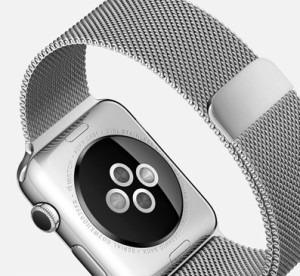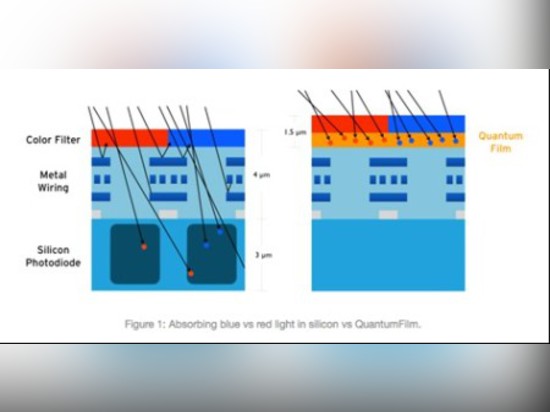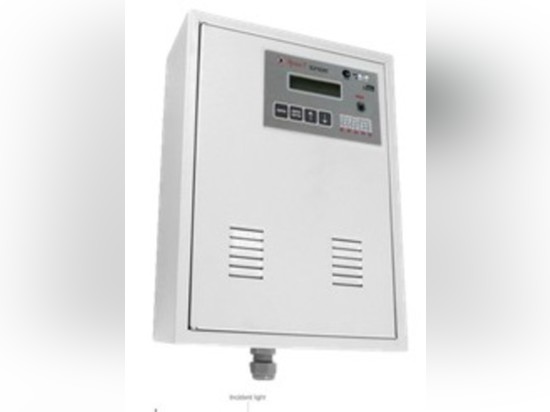
#IT & Technology - Telecom
Beyond the Apple Watch: How Quantum Sensors will Change the World
The recently announced Apple Watch is destined to make sensors cool, bringing new features to consumers who rely on sensors for motion, heart-rate and pressure.
Cooler still may be the latest developments in quantum sensing that measure activity on a nanoscale.
The unique behavior of systems at the atomic scale allows for ultraprecise measurements that are starting to transform a variety of industries like medicine, agriculture and transportation. They have the potential to impact our lives much sooner than many other quantum-based technologies.
From futuristic “smart clothes” with built-in health sensors to driver-free cars with precise navigation systems based on atomic clocks (basically eliminating accidents), engineers will have the opportunity to develop all kinds of technologies with improved sensing.
Here are a few applications where quantum sensing can make an impact in the near term.
Let There Be Light: Cameras and Quantum
We tend to think about megapixels when judging camera quality -- the more megapixels, the clearer image. But this is only true up to a point.
The core factor is actually light absorption. To dramatically improve cameras, we will need technology that makes it possible to absorb more light. This will be possible with quantum film, which helps capture far more light than conventional cameras.
Today, a company called Invisage is building the world's most sensitive mobile camera based on quantum film. It uses quantum dots, which is already used in televisions and various industrial applications but has yet to be applied to the cameras we use on a daily basis. Technologies like this will ensure that the next generation of cameras in our smartphones aren't just incrementally better, but an entirely new beast.
Turning Diagnostics Inside Out
To date, medical professionals have primarily relied on sensors that measure symptoms of ailments, like body temperature or blood pressure. Although these types of instruments provide valuable information about an individual's condition, they may not pinpoint exactly what is wrong with someone. (Does this fever indicate a bacterial infection or a virus?)
More recently, new chemical sensors have been developed that can be injected into the blood and detected using MRIs. This can help improve the accuracy of diagnoses by identifying problems on the organ level.
Quantum sensors can take us to an even smaller level, revealing minute changes in living cells.
These sensors, which are built using diamond nanocrystals, can measure characteristics like temperature that may indicate conditions like cancer and eventually help us target medicine only to malignant cells.
In the near future, we'll be able to look at human health not just holistically but down to each individual cell, and we'll be able to build tailored treatments that help people get better faster.
Lightening the Structural Load
One of the most important considerations that goes into construction projects is what type of material to use. That decision hinges upon factors including strength, flexibility, conductivity, durability and many more. Engineers ask themselves what they need from the material and then seek out the best possible fit.
Using nanotechnology-based methods, we can create optical fibers that can be embedded in composite material. When objects are built using this technology, people are able to measure the load-bearing quality of objects in real-time after they have been built. Essentially, the material itself becomes a sensor.
This method has already been implemented as a structural monitoring system for a bridges in Canada, allowing for centralized, real-time monitoring of bridges from a single site . We can also use quantum simulation to model the behavior of materials before they are synthesized, allowing us to study their behavior and properties before creating the final material.
Moving Forward: The Future of Quantum Sensing
The current work on quantum sensing is now focused on increasing the number of sensors we use, dialing up their sensitivity and building specialized tools to efficiently process all of the data they produce. Companies like Samsung are already making investments in quantum sensors using materials like graphene, demonstrating a strong market interest in these materials.
Design engineers will have quickly identify opportunities to capitalize on developments in quantum sensing. And, perhaps, quantum sensors will finally allow us to develop a watch with all of the functionality of a Star Trek Tricorder.
About the Authors
Aleksey Fedorov is a junior researcher at the Russian Quantum Center. His research interests include theoretical physics, condensed matter theory and mathematical control theory.
Ruslan Yunusov is the CEO of the Russian Quantum Center. He holds a PhD in Physics from Lomonosov Moscow State University.



